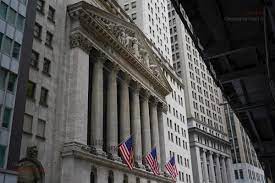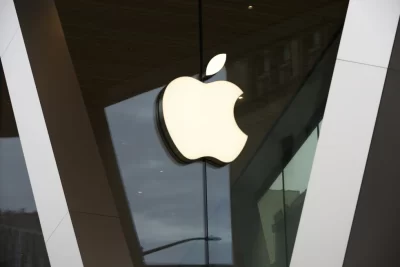
Stocks drifted to a mixed finish Friday after a half-day trading session capped a holiday shortened week that left the major indexes with their fourth straight winning week.
The S&P 500 inched up 0.1% after wavering between small gains and losses much of the day. The Dow Jones Industrial Average added 0.3% and the Nasdaq composite slipped 0.1%.
All told, the S&P 500 added 2.72 points to 4,559.34. The Dow rose 117.12 points to 35,390.15, and the Nasdaq fell 15 points to 14,250.85.
Trading was muted as markets reopened following the Thanksgiving holiday on Thursday. Gains in health care, financial, energy and other sectors helped temper losses in technology and communication services stocks.
Chipmaker Nvidia and Google parent Alphabet were among the biggest decliners, losing 1.9% and 1.3%, respectively. Among the big gainers in the S&P 500 were CF Industries, which rose 2.6%, and Best Buy, which closed 2.2% higher.
Forecasts for a potential recession have been pushed further out into 2024 while also being softened. The rate of inflation continues to ease, consumer spending remains solid and the economy is generally humming along. That has encouraged hopes, and bets, that the Federal Reserve might even consider cutting rates.
Fed officials, though, have said the outlook for the economy remains uncertain and they’ll make upcoming decisions on rates based on incoming reports. The Fed will get another big update next week when the government releases its October report for a key inflation measure tracked by the central bank.
In the bond market, Treasury yields broadly rose Friday. The yield on the 10-year Treasury, which influences interest rates on mortgages and other loans, rose to 4.47% from 4.41% late Wednesday. The yield on the 2-year Treasury rose to 4.95% from 4.90% late Wednesday.
Oil prices, a key driver of inflation, continued to ease Friday, with U.S. crude sliding 2%. Oil prices have plunged in recent weeks amid worries about a mismatch between too much crude supply and too little demand.
Investors are watching to see how U.S. retailers will fare as the holiday shopping season kicks off with Black Friday, given growing concerns that spending may slow under pressure from dwindling savings, rising credit card debt and inflation.
The latest quarterly results from a string of retailers from Walmart to Best Buy to Saks Fifth Avenue suggested a weakening of consumer appetites for spending even as inflation eases and employment remains robust.
Shares were mostly higher in Europe. Germany’s DAX edged up 0.2, while the CAC 40 in Paris edged up 0.2%. Britain’s FTSE 100 added 0.1%.
Asian markets ended mixed. Tokyo’s Nikkei 225 added 0.5% after Japan reported its consumer inflation rose for the first time in four months, with big gains in food prices and hotel rates as tourism has soared. The consumer price index rose 3.3% in October from a year earlier, up from 3% in September in a trend contrary to the Bank of Japan’s forecasts for price pressures to abate toward the year’s end.
“Both the government and the BOJ will be concerned about higher-than-expected inflation,” Robert Carnell and Min Joo Kang of ING Economics said in a commentary. That will likely lead the central bank to adjust its extremely lax monetary policy in the new year, they said.
In China, shares fell back after recent gains driven by expectations of more government support for debt-burdened property developers. Shares in Country Garden, one of the biggest, sank 7.6% after gaining 16% the day before.
In Hong Kong, the Hang Seng fell 2%, while the Shanghai Composite index lost 0.7%.
Elsewhere in Asia, South Korea’s Kospi declined 0.7%, while the S&P/ASX 200 in Australia gained 0.2%.
___
AP Business Writer Elaine Kurtenbach contributed.






